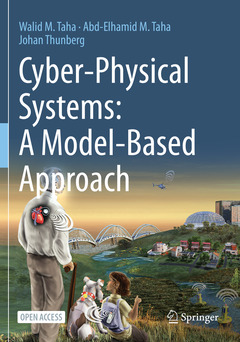Cyber-Physical Systems: A Model-Based Approach, 1st ed. 2021
Auteurs : Taha Walid M., Taha Abd-Elhamid M., Thunberg Johan

Offers a unique perspective to gain the skills needed for learning, applying, and developing a wide range of scientific, engineering, and social knowledge that are key to engineering future systems
Introduces key concepts from different areas in an efficient manner. The disciplines considered include physical modeling, control, hybrid systems, computational modeling, and game theory
Focuses on modeling, and uses simulation rather than analytical methods to provide generality and avoid the need for specialized mathematical skills.
Assumes very little mathematical prerequisites, and offers the opportunity to review and sharpen mathematical skills
Date de parution : 09-2020
Ouvrage de 187 p.
17.8x25.4 cm
Disponible chez l'éditeur (délai d'approvisionnement : 15 jours).
Prix indicatif 52,74 €
Ajouter au panierDate de parution : 09-2020
Ouvrage de 187 p.
17.8x25.4 cm
Disponible chez l'éditeur (délai d'approvisionnement : 15 jours).
Prix indicatif 52,74 €
Ajouter au panier

